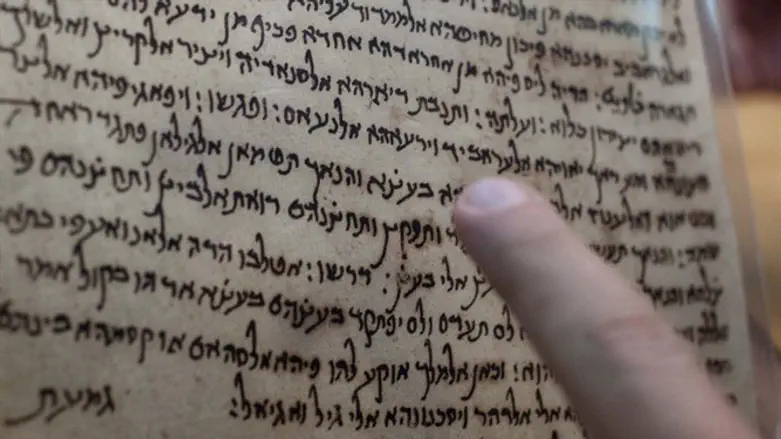
A software to assist individuals learning the Hebrew language was announced last Thursday as the winner of the 5th annual Jerusalem College of Technology (JCT) Great Minds Hackathon, a 48-hour virtual event that included nearly 100 engineering and business students from the college.
The winning team was made up entirely of native English-speakers — Elan Leonard from Houston, TX, Jonah Lawrence from Denver, CO, Yitzchak Meltz from Toronto, ON, and Eli Levin from New York, all studying computer science in the school’s International Program in English, who were inspired by their experience moving to Israel and trying to learn Hebrew. Working on a hackathon challenge from Ex Libris, the four-person team created a predictive Hebrew writing and learning tool that will make understanding the language easier.
The technology serves as both a form of an autocorrect when a Hebrew word is being typed, and also provides options for the word’s appropriate vowels when you hover over it with a cursor, in effect making it much easier to understand the word’s meaning. The group hopes the product can be of significant benefit for anyone trying to learn Hebrew, particularly olim chadishim (new immigrants to Israel).
“When I tried to learn Hebrew after coming to Israel, I would read books like Harry Potter in Hebrew. The problem was that they have no vowels, so I didn’t understand what every word was,” said Elan Leonard. “When this product is fully developed, we hope you will easily be able to add vowels to things like Harry Potter books and Hebrew newspaper articles, acting as an amazing learning tool for people trying to learn Hebrew.”
Orthodox and haredi Jerusalem College of Technology students from Israel and dozens of other countries took part in the hackathon, working on challenges presented by the likes of Amazon Web Services (AWS), Elbit Systems, Intel, Rafael Advanced Defense Systems, Ex Libris, and more.
Third place went to a team composed of JCT’s Israeli students, who worked on a challenge from Amazon Web Services. This challenge was presented to students by AWS’s representative, Sagie Kerman, following a personal tragedy he endured.
Three months ago, Kerman’s father suffered a hemorrhagic stroke, which is more of a rare incident that requires neurosurgery. Unfortunately, he was taken to the nearest hospital, but that facility did not possess the appropriate specialist.
Consequently, the surgery was conducted at a different hospital eight hours after the time of the stroke. He was unconscious for 12 days then passed away.
After consulting multiple medical professionals inside Israel and abroad for second and third opinions, Kerman realized that this tragic situation happens throughout the world. He thought that there must be a technology developed to instantly direct ambulances on which hospitals to go to for particular incidents.
The technology developed by JCT students at the hackathon is a software that ambulance services would install that registers patient symptoms, assists in a potential diagnosis, then connects with the most appropriate hospital based on parameters, such as beds, occupancy, and specific departments, in order to determine the best hospital for the ambulance to go to.
“Heart attacks and strokes are the #1 cause of death in the Western World. The time after a stroke is a very crucial time. If you miss it, survival rates and chances for disabilities greatly increase,” Kerman said. “After my father’s case, I realized that if human beings cannot make optimal decisions, there needs to be a technological solution for it...Patients need to go to the right hospital, not necessarily the nearest one.”
The hackathon is run by the LevTech Entrepreneurship Center of JCT, which also includes a pre-accelerator program to help students turn their ideas into products and start-ups. The winners were selected by a panel of eight judges from successful Israeli companies. Other solutions created included technology to protect individual soldiers against ‘friendly fire,’ and technology using image processing that automatically informs you when your posture is bad when you are sitting and working at a computer.
“This is the second year I participated as a judge at the LevTech Hackathon. Last year, I was very impressed with the quality of products presented for a 3-day Hackathon, so I was a little apprehensive that COVID might hurt the event this year and we wouldn’t see the same level of work in tackling real-world issues,” said Amit Svarzenberg, Israel Partnerships Manager at Microsoft for Startups and a judge in this year’s hackathon. “To my surprise, not only did the level not drop this year, but it went even beyond. Right after the event, I found myself talking about the product to my friends trying to learn Hebrew and to my mother-in-law who does linguistic editing for children’s books.”